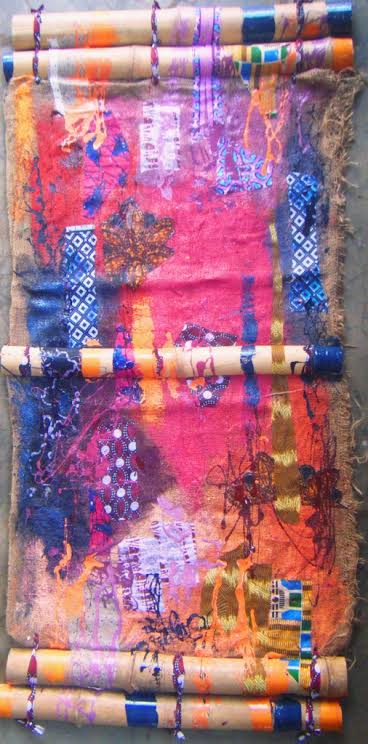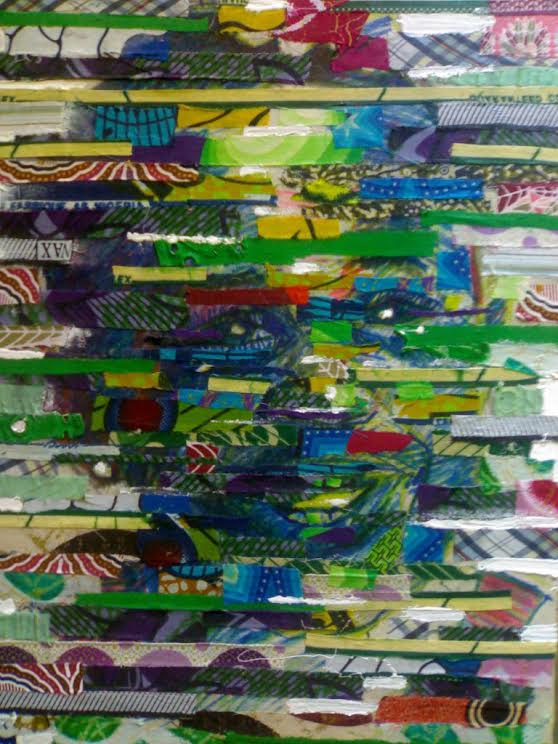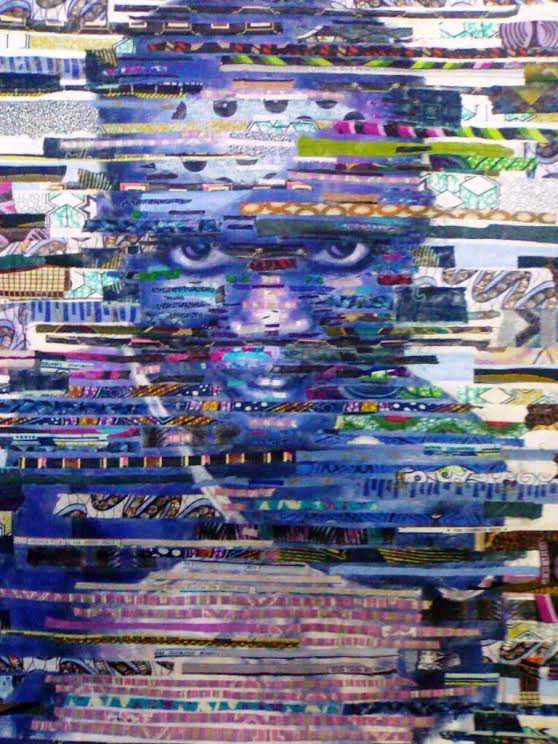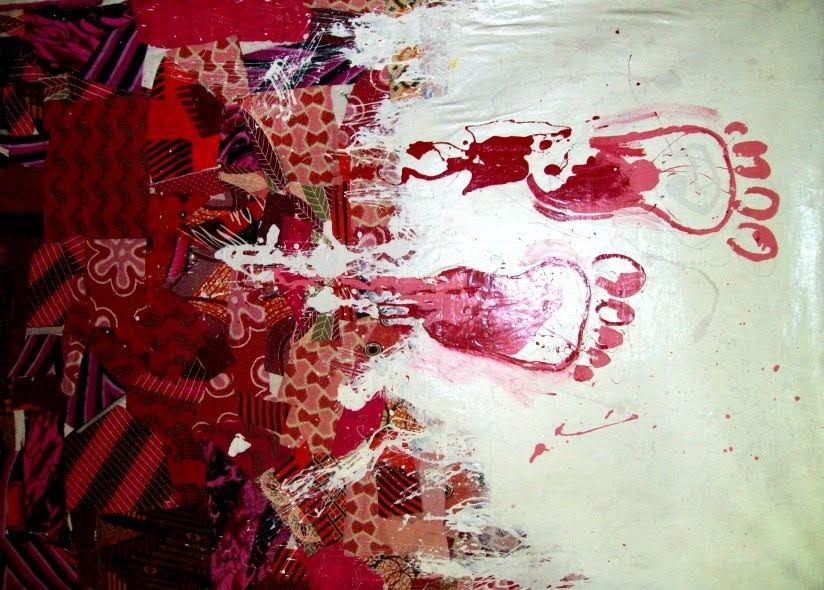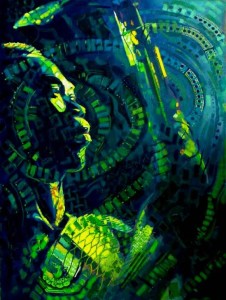
Iorver Ikeseh
Alive in death.
Statement:
Portraying the African child – where anthropology and art meet
Posted on April 17, 2014
I am so proud to be an artist. I started art at a very early age. Creating art is best when the artist sees his art as a lifestyle, not as a job. Art is often defined as self expression. But the question is… self expression of what?
Abeda II.
More than selling ‘good’ art
I was born in Makurdi, Central Nigeria, where I grew up. When I was about ten, I learnt I could study art and earn a degree. It was about the most exciting thing I had ever heard. I studied Fine Arts (BA) at the Ahmadu Bello University in Zaria. It is the largest university in Nigeria. I still recall an interview I gave after my first degree: I said I used four years in school to discover that I don’t need school. This for me was very real: I just lived my life and earned a degree! But now I was certified to go out to the world and express myself. I invested a lot of time in my work to make sure it was outstanding. I enjoyed all the praise from family and friends. I was flooded with compliments during art exhibitions and even began to get media attention. Shortly after, I was drowned into a new reality: that good art is beyond good drawing. Life for me meant more than just selling ‘good’ art. I had to define myself and my art. I had to answer the big question: who am I? A question every critical artist has had to address.
Another Nigeria.
The perception of Africa
So when I was asked to put up an art exhibition at the ASC, I asked myself: what to exhibit? What am I expressing? The last exhibition at the ASC consisted of works by two artists and was titled ‘Look at You’. For me it summarized the world’s perception of Africa to a large extent. One of the artists showed how most Africans see Europe – very rosy, beyond reality (with very big colourful posters of Europe in their rooms) while the second artist showed how the West has portrayed Africa – as a brutal, poor sick place (with collage of pictures mostly from print media). Interestingly these two views are correct and real, but there are also other views to explore.
Kikelomo.
The innovative African child
Globally the image that has been portrayed in the West of African children has been one of pity; especially people who have not been to Africa get that picture. This preconceived image is generated through the media, word of mouth and many other ways. But think for a while about how innovative the African child has been, adapting and triumphing over very unimaginable circumstances. This act of genius, which only a few have acknowledged, is a gap my art intends to continually fill. As an artist I celebrate African children in unusual ways. Interrogating correctly and representing the minds of children demands an in-depth understanding of the child’s world. This cannot be achieved without participation observation: anthropology and art history are two related areas. Over time I have come to see the need to combine these fields in order to get a more holistic approach to research and art. The need to get more familiar with anthropology led me to my new family: the African Studies Centre in Leiden.
And he got in the way of somebody.
Are my perceptions correct?
It is fascinating to be part of the ASC. A new family where I meet with Africans and African minded people. I get to hear anthropological and ethnographic experiences of scholars – both students and lecturers. I am in a class of about ten diverse people; I find them all unique and interesting, especially when I engage with them about culture. It is great to study Africa in Europe amongst Europeans. I have lived and studied in Africa, so I can relate to a number of examples during class discussions. My Research Masters at the ASC has also made me ponder about how Africa is seen by Africans living in Europe. In class I sometimes feel that perceptions are not correct (or exaggerated) and should be corrected, but then again, that may be so because I am an African and I am biased. While I am writing this blog, I still ponder: am I being objective or am I defending my Africa?
Iorver Ikeseh (text site African Studies, copyright the artist)

